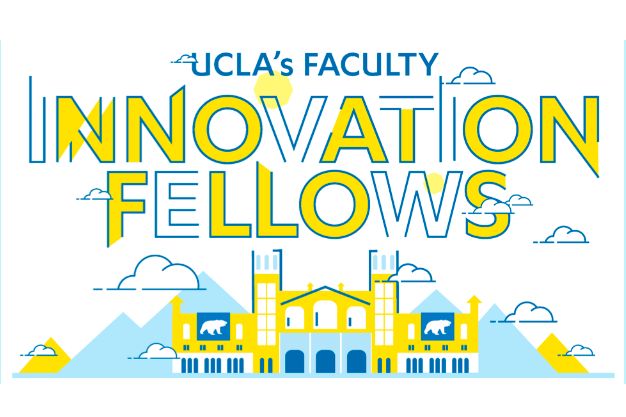Opportunities
UCLA Health and the David Geffen School of Medicine at UCLA are committed to supporting a culture of innovation. That commitment is reflected in our strong portfolio of startup companies. UCLA is among the nation’s best for commercializing campus research, according to a 2017 report from the Milken Institute.
Turning a novel idea into a commercial product can be a complicated and costly process. To support innovators across campus, funding opportunities and other resources are available.
Innovation Challenge 2025
UCLA Health celebrates the launch of the 5th Annual UCLA Health Innovation Challenge, which provides our community, including faculty, staff, trainees, students, patients, caregivers and volunteers, the opportunity to help advance long-lasting health and equitable care.
UCLA Biodesign Fellowship
UCLA BIODESIGN provides advanced-degree candidates, medical residents and early-stage career professionals with a platform to innovate. The program offers interdisciplinary fellowships to train the next generation of health care transformers, connecting university resources across medicine, engineering and business with industry partners.
Discovery Track Applications open through September 30, 2022.

UCLA Biodesign Accelerator Fellows
The UCLA Biodesign Accelerator is a forum for clinical innovators at UCLA Health to collaborate, validate, and advance early-stage ideas and concepts.
The program offers an accelerated trajectory open to all UCLA faculty and staff (attention residents, fellows, nurses, and ancillary staff – this means you, too!). The program is an a la carte model, consisting of a time commitment of five hours per month, under the guidance of expert industry mentors, investors, and UCLA Biodesign faculty.

UCLA Health TechQuity Accelerator
A partnership with Bioscience LA and UCLA Biodesign, the UCLA Health TechQuity Accelerator is a four-month program that brings front-line innovators developing inclusive technology for pandemic resilience to UCLA Health.

NSF I-Corps Innovation Node Los Angeles
The National Science Foundation’s (NSF) goal is to help faculty and students perform customer discovery to find out if their innovation has commercial potential. Regional NSF I-Corps Site teams complete an education component to advance to tha national NSF I-Corps program which provides funding of $50,000 to do deeper market and commercialization proof-of-concept work around the team’s technology.

UCLA Innovation Fund
The UCLA Innovation Fund is a campuswide biomedical competition to move technologies from idea to the market. Each year the program awards prizes up to $200,000 to UCLA faculty working in therapeutics, medical devices and diagnostics, and digital health technologies.
- UCLA Technology Development Group
- UCLA Health and the David Geffen School of Medicine
- UCLA Henry Samueli School of Engineering and Applied Science
- UCLA School of Dentistry
- UCLA Divisions of Life Sciences and Physical Sciences

UCLA Faculty Innovation Fellowship
This campuswide initiative is designed to advance innovative projects into new startup companies, centers or nonprofits. The 12-week mentoring program focused on pitch development, business strategy and venture consulting.

Sanofi iAwards 2020
The UCLA Technology Development Group (TDG) and David Geffen School of Medicine are continuing their partnership with the biopharmaceutical company, Sanofi, that allows UCLA faculty to participate in Sanofi's iAwards program. As described in detail in the attached Call for Proposals (CFP), successful applicants will receive $125,000 in research funding for one year, along with an opportunity to renew the support on a competitive basis or transition to a larger Sponsored Research Agreement.

DGSOM Seed Grant Program
The David Geffen School of Medicine (DGSOM) Research Themes have been charged with increasing the impact of basic, translational, clinical, and community research at UCLA in high-priority and broadly defined biomedical research areas. In addition, the Institute of Precision Health (IPH) has been aggressively building an infrastructure for collecting genetic information for a broad range of UCLA patients; IPH seeks to identify diverse research projects that either take advantage of this infrastructure or focus on the development of alternative precision health strategies for advancing knowledge and improving patient care.

NHLBI Technology Development Award
The University of California Center for Accelerated Innovation offers development awards of up to $200,000 for novel technologies that address unmet needs in heart, lung and blood diseases. The funding opportunity supports a range of drugs, devices, diagnostics and tools. Faculty across the UC system are eligible to apply.

Consortium for Technology and Innovation in Pediatrics (CTIP)
The West Coast Consortium for Technology and Innovation in Pediatrics services the Southern California community by helping innovators understand pediatric commercialization challenges early in the process and to identify viable paths to market through innovative business models and collaboration. Up to $50,000 in grant funding is available via a competitive application process.

Accelerators and Incubators
Anderson Venture Accelerator
The Anderson Venture Accelerator is a 10,000-square-foot incubator for new UCLA startups. The accelerator’s three-tiered program focuses on supporting student-led startups, connecting them with alumni and mentors, and collaborating with industry and media partners.
CNSI Magnify
The California NanoSystems Institute (CNSI) at UCLA leverages public and private investment for nanoscience research to turn discoveries into commercial enterprises. The institute offers a variety of innovation resources, including its incubator, Magnify. Magnify is designed to accelerate the growth and success of transformative technology startups by providing affordable, high-quality facilities, services and expertise.
Other UC/UC Related Incubators and Accelerators
SLING Health UCLA
A non-profit, medical student-run health innovation incubator that aims to connect medical, engineering, business, and law students with clinicians to solve impactful healthcare problems. In addition to facilitating team creation and problem identification, the group provides a framework for health innovation and connects teams to resources on campus that are necessary for their success.
More Funding Opportunities
UCLA Technology Development Group (TDG)
A list of some of the funding opportunities and programs that are available from within UC and outside UC to support entrepreneurship and university-industry research collaborations.
BioFund – a Non-NIH Funding Database
UCLA Health and David Geffen School of Medicine has created a non-NIH funding database as a tool for biomedical researchers. The health care system is actively compiling non-NIH funding sources and aggregating them into an easily accessible database.